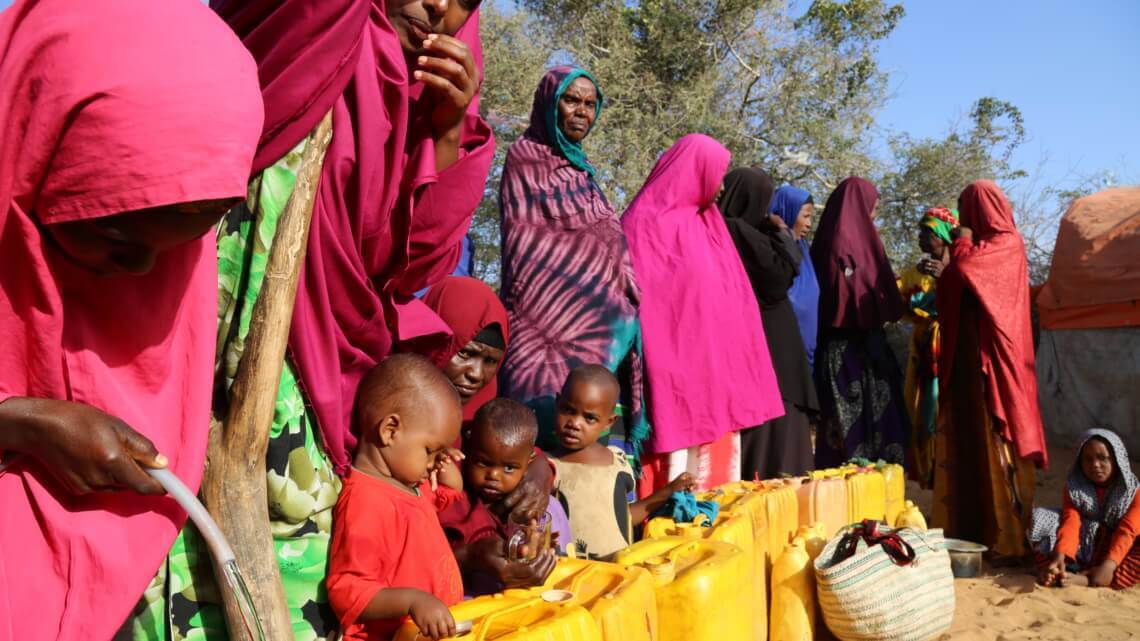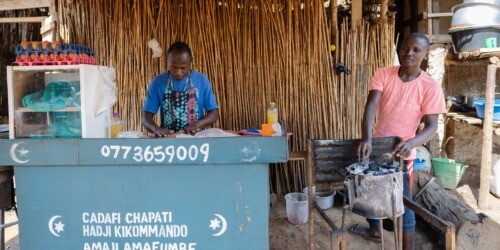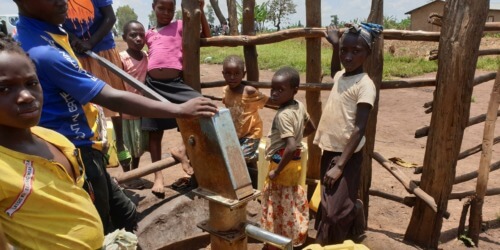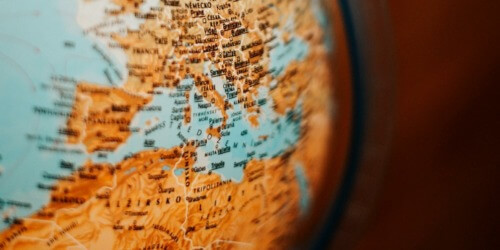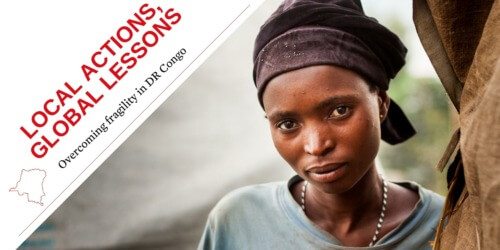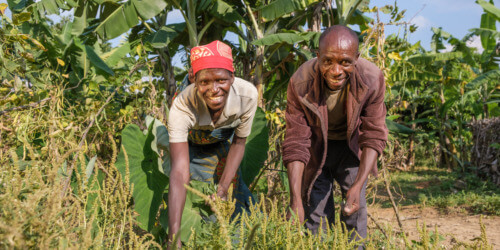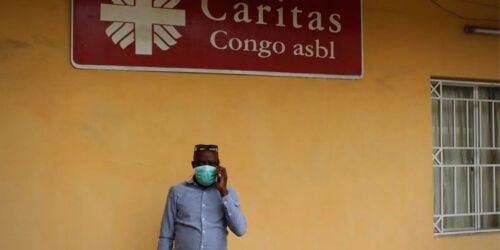Caritas in Gedo : 24h/24
Abdi Tari Ali works in the Gedo region of south-west Somalia. He is responsible for the programs in Trocaire (Caritas Ireland). He is also a doctor and helps where he can: “there is no question of normal working hours, our employees have 24-hour shifts in order to save as many lives as possible.”
Trocaire has been active for 25 years in Gedo. The organization provides health care and provides nutrition and education programs. Trocaire supports 3 hospitals, 10 basic care centers, and 4 medical centers.
DROUGHT: Worse than ever before
The famine of 2011 cost the lives of 250,000 people. The current drought is the worst human memory. It is more extreme and has been going on for a longer time than in 2011. The harvests are bad or non-existent and many villages have no water. “Many people here are shepherds. Their herd of cattle is dead,” says Ali.
“People sometimes walk more than 90km to get here because at least here there is water and their animals, or they try to go to Ethiopia which is not simple. Often, they land in camps with dismal living conditions. We already count 40,000 sick children: undernourished and suffering from diarrhea or who suffer from respiratory problems because they sleep outdoors without adequate protection.”
Children, the first victims
The food aid program has been expanded from 9,000 to 12,000 children. “We crumble under the demands,” says Ali. “Children are really bad. We see immediately that they are suffering from malnutrition: they have a blistered face, thin hair, and a swollen stomachs and feet. If you push with a finger on their arm, it leaves a mark. The skin has lost all its elasticity.”
“We focus on the most vulnerable children. We give them porridge and dry food. We do a quick screening when they arrive, register them and immediately start the proper feeding program.”
In addition to these assistance programs in health centers, Trocaire also organizes food distributions in schools. In 2011, dropping out of school increased at the same time as hunger and lack of food. The distribution of food in schools is essential to keep children on school benches.
Cholera is spreading
The number of cases of cholera also continues increasing rapidly. The hygiene in the camps is lamentable. Water is lacking and people are weakened due to the lack of food. A case of cholera can contaminate an entire camp or village and it is for that reason why Caritas has also set up two cholera treatment centers where patients are rehydrated and treated with antibiotics.
“Cholera is easily cured,” explains Ali, “provided that people come to us. Some are taken on a stretcher or camel-back and have to travel 20km before finding help. Who knows how many die on the way … ”
“Our 30 beds are no longer enough to accommodate hundreds of patients. The lucky ones have a bed, the others sleep outside. ”
Caritas wants to do more
CRS, Caritas USA, is also active in the rural areas of central Somalia and in the border region of Kenya. Many farmers have no money left, their animals – their capital – have died. CRS distributes cash to people where food and water are lacking. CRS also builds wells, repairs and organizes training on sustainable water management. CRS is trying to prevent farmers from leaving their homes.
Abdi Tari Ali: “In December, we already knew that a catastrophe would happen but the international community is slow to react. Famine and many deaths can be avoided with the necessary financial means. There is food available and Caritas can and will help more people, but for that, we need additional resources. ”
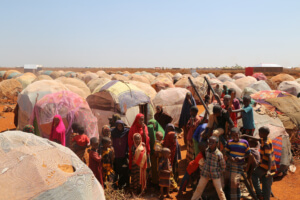
Credit: Mohamed Sheikh Nor/CRS









